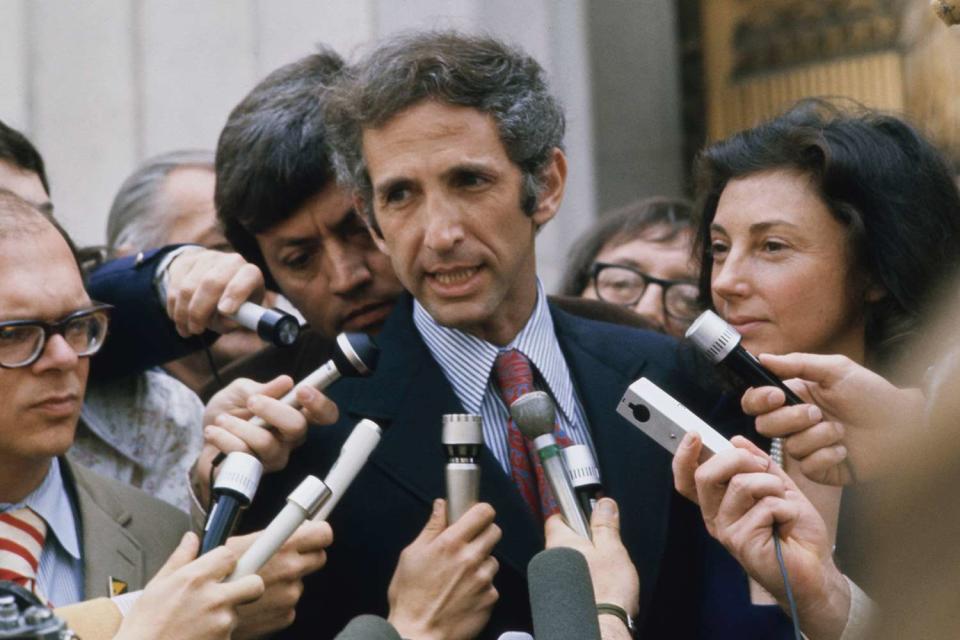Pentagon Papers Whistleblower Daniel Ellsberg Dies at 92
- Oops!Something went wrong.Please try again later.
Ellsberg supplied outlets including The New York Times and The Washington Post with documents detailing the Vietnam War

Bettmann Archive/Getty
Daniel Ellsberg, a former military analyst who leaked the Pentagon Papers in 1971, has died at the age of 92, his family announced on Friday. Ellsberg was diagnosed with inoperable pancreatic cancer in February, Reuters reports.
Ellsberg had three degrees from Harvard and served in the Marine Corps before going on to work as an analyst at the Pentagon and the think tank RAND Corporation. It was while working at RAND that Ellsberg read one of 15 copies of a 7,000-page report put together by Pentagon officials that detailed the U.S. involvement in Vietnam from 1945 through 1967.
He would later copy pages of the documents on a Xerox machine, eventually sharing them with reporters at the New York Times more than a year after he first read them.
Related: A Secret Plot, Charts and an Easel: Remembering a Bizarre Snafu During Watergate Scandal
In June 1971, the Times ran its first installment of the Pentagon Papers, which detailed how U.S. officials weren't confident that the war could be won and had downplayed casualty figures.
Eventually, Ellsberg leaked the papers to various other outlets including The Washington Post, and the Richard Nixon administration was granted an order halting the publication of further documents. Media outlets appealed the decision, with the Supreme Court agreeing to hear the case within days, and ultimately allowing the publication of the papers to move forward.
Once Ellsberg came forward as the leaker of the documents, Nixon himself sought to humiliate him, ordering some of his top aides to break in to Ellsberg's psychiatrist's office in an attempt to discredit him.
That break-in — and another, of the Democratic National Committee's office, located in the Watergate complex — would go on to be Nixon's undoing.
Ellsberg, meanwhile, was charged with espionage, theft and conspiracy, though a 1973 trial would end in a dismissal due to the government misconduct tied to the break-in.
Never miss a story — sign up for PEOPLE's free daily newsletter to stay up-to-date on the best of what PEOPLE has to offer, from celebrity news to compelling human interest stories.
In a 2011 story penned for The Guardian, Ellsberg wrote of his deep regret at having not leaked the Pentagon papers earlier – and urged others, with similar access to incriminating information, to release it as soon as they could.
"Don't make my mistake. Don't do what I did. Don't wait until a new war has started in Iran, until more bombs have fallen in Afghanistan, in Pakistan, Libya, Iraq or Yemen. Don't wait until thousands more have died, before you go to the press and to Congress to tell the truth with documents that reveal lies or crimes or internal projections of costs and dangers," he wrote. "Don't wait 40 years for it to be declassified, or seven years as I did for you or someone else to leak it."
He continued: "The personal risks are great. But a war's worth of lives might be saved."
For more People news, make sure to sign up for our newsletter!
Read the original article on People.

